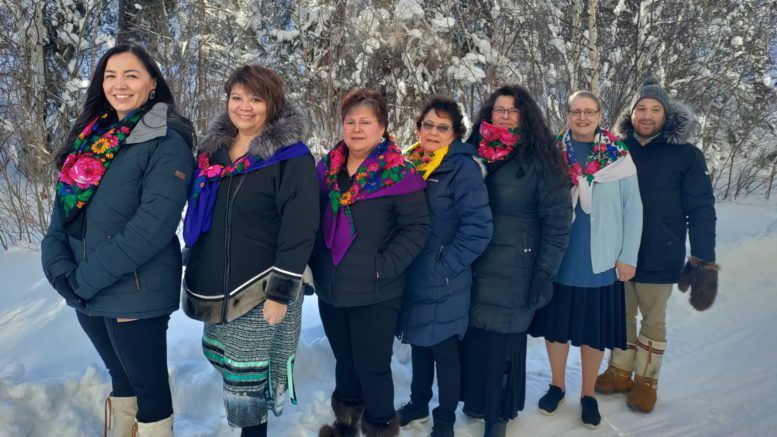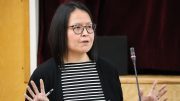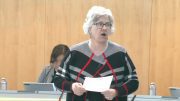Glenda Simon has been in the healthcare sector for 25 years, and has seen firsthand the barriers Indigenous people face accessing care.
“I don’t like seeing patients struggle through the health system, it breaks my heart,” she says.
Now, Simon is one of the new Indigenous Patient Advocates with the Northwest Territories Health and Social Services Authority (NTHSSA) whose job is to help Indigenous patients navigate the healthcare system.
The NTHSSA now has four Indigenous patient advocates: One in Inuvik, one in Fort Smith, one in Hay River, and one in Yellowknife. The program had its soft launch last month, three months after the first few advocates were hired.
Barriers to accessing services can include everything from language to geography to technology. Patients or Elders who have gone through Residential School may not feel equipped to speak up in the face of an authority figure like a doctor.
As Denise Ritias, another patient advocate, explains, part of her role is also to help healthcare workers understand the cultural barriers Indigenous patients face. “We do have a high turnover in staff, that’s just how it is up north,” she says. “And so I think one of our tasks is to make sure that we are teaching cultural awareness, and making sure and encouraging staff to follow through with culturally safe practices.”
The initiative is part of the NTHSSA’s new Office of Client Experience, which was announced in the Legislative Assembly on Tuesday. Minister of Health and Social Services Julie Green said it will “provide support for all residents and their families when accessing health and social services, including system’s navigation, client and family advocacy, and connecting clients with additional supports and resources.” These additional resources include language and cultural services and supports for Elders.
The program came about largely thanks to pressure from regular members of the Legislative Assembly. But Fraser Lennie, the program director and supervisor for the Office of Client Experience, says the need and the desire for such a program has been there for a long time. “I think a lot of residents have recognized that there needs to be increased support for Indigenous clients and families, because they often can experience difficulties when they access the health and social services system,” he says. “A lot of indigenous people don’t feel necessarily culturally safe. And I think that’s inherent with many health and social services, systems.”
He says his office is tracking the number and types of requests they’re getting to better understand the demand. The goal is “having ample time to ensure that we’re providing a service that’s based on quality, right? Not necessarily on quantity. We want to provide a quality service.”
Above all, says Ritias, patients “need help finding their voices. And I feel that’s something that’s going to take a while. But that’s why we’re here. We’re here to help them.”
Patients can connect with an advocate either through referrals from healthcare professionals or by contacting the Office of Client Experience at HSS_Clientexperience@gov.nt.ca or 1-855-846-9601.









